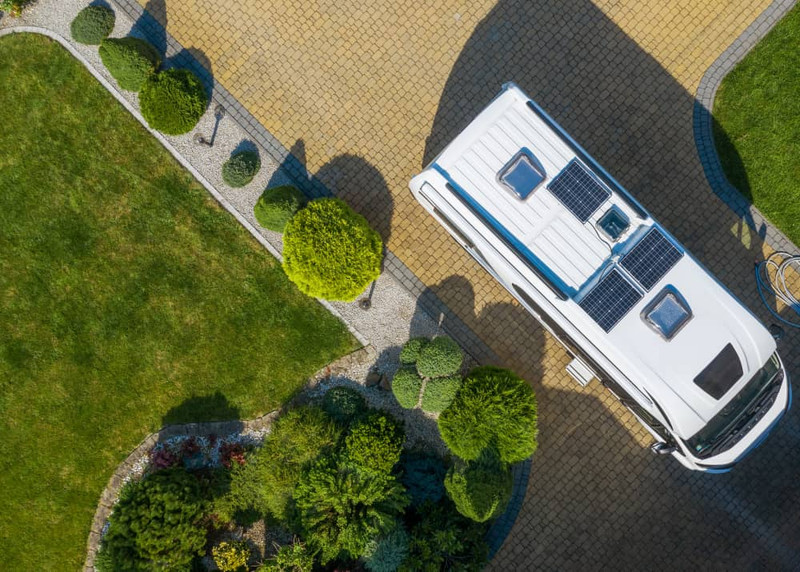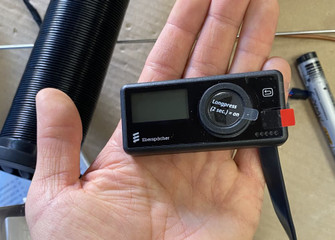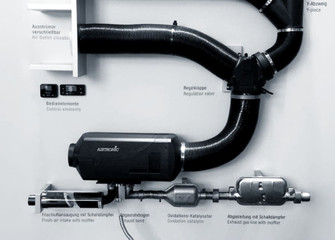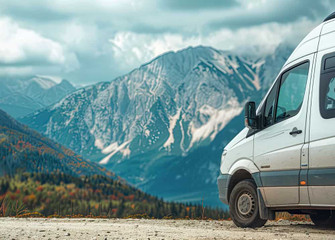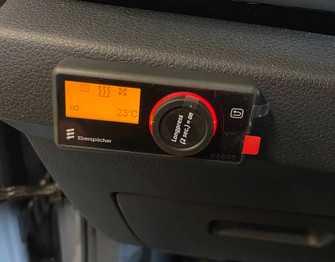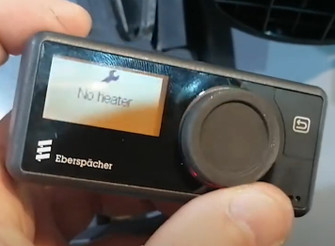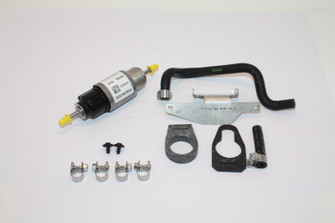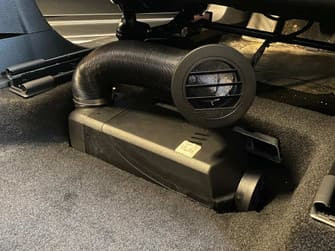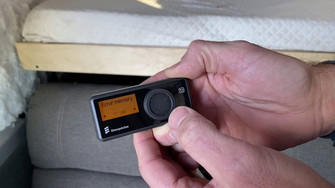Choosing the ideal solar panel for camper van
Posted by Heatso on 15th Jun 2022
Solar power is an ideal solution to stay powered on while living off-grid. In this guide, we’ll cover the 3 main types of solar panels and explain how they help keep your laptop charged.
CHOOSING THE IDEAL SOLAR PANEL FOR CAMPER VAN
HOW TO ASSEMBLE AN RV WATER SYSTEM?
Staying powered on while living off-grid can be a challenge. You need to power a combination of AC and DC devices, from fridges to lightbulbs, with a very limited source of electricity. That’s where solar panels come in.
Solar panels are a clean and renewable source of energy, ideal for vanlife. They work by converting sunlight into energy that can be stored in batteries or used right away. A solar-powered camper is self-sufficient and doesn’t need to rely on shore power to stay running.
In this guide, we’ll cover the 3 main types of solar panels and explain how they help keep your laptop charged. Find out how to calculate how much power you need, and why solar panels are one of the 5 Vanlife Essentials.
ON THIS PAGE
SHOULD YOU GET A SOLAR PANEL FOR YOUR VAN?
Mounting a few rigid or flexible solar panels on your roof is a reliable way of generating a constant supply of electricity. Portable solar panels offer similar benefits, only in a foldable, easily transportable format.
Solar panels work by absorbing the energy from sunlight. Even without direct sunlight, the photovoltaic cells in your solar panel will still generate some amount of clean energy. This energy can be stored in your battery bank, or used for devices that use direct current (DC).
Even with one panel, you can immediately start using renewable energy to power your smaller appliances. And if you’d like to install a large camper solar panel kit, the wiring is significantly easier than it may seem. In the end, it’s definitely a worthwhile investment and will significantly improve your off-grid travels.
HOW MUCH SOLAR POWER DO YOU NEED?
When choosing a camper solar panel kit, it’s important to understand that it’s not the same as choosing a solar kit for a house. Since an RV isn’t hooked up to the electric grid of your country, you can’t really sell back any of the excess solar energy you generate.
It is considered good practice to choose a solar kit that will supply just as much solar power as you need for daily use of appliances. In most cases, any excess energy you generate won’t go to filling up your batteries to over 100%, it will just be wasted potential.
If you want to find out exactly how much power output you need, we highly suggest using the GoPower! Solar calculator. It takes into account all the potential variables when calculating your solar power needs. This includes vehicle and battery type, travel time, panel preference, and a detailed list of AC and DC appliances you may want to power.
TYPES OF SOLAR PANELS
Now that you know how much power you need, it’s time to decide what type of solar panels you want. The 3 main types of solar panels are rigid roof-mounted, thin and flexible, and portable solar panels. Each kind has its unique benefits and is suited for different vehicles and lifestyles.
Flexible Solar Panels
Flexible panels are thin, lightweight, and easy to install. They work perfectly for buses and vans that have curved roofs or marine vessels. There’s no need to drill holes or mount brackets, and they sit flush with the surface of your vehicle.
Without the need for brackets, you can cover a larger area in solar panels to generate more power. Unfortunately, this also means that flexible solar panels are more fragile than their rigid counterpart. If you’re looking for a light and versatile solar solution, flexible panels are for you.
Rigid Solar Panels
Rigid panels are the most popular mounted van solar panels. They’re well-regarded in the van life community for their durability, efficiency, and overall affordability. Compared to flexible panels, rigid solar kits are more budget-friendly and can generate more power per square inch.
Usually mounted in an aluminum frame, rigid panels take up more space and weigh quite a bit more. They come in a wide range of sizes and output, so it’s easy to find a kit that suits your needs. Overall, this is the most popular and versatile type of solar panel for campers.
Portable Solar Panels
Portable panels are the only kind that is not permanently mounted. They’re usually foldable and come with a thin suitcase, which makes them easy to transport and deploy. Portable solar panel kits can be set up at a distance, so your motorhome can stay in the shade while you charge up.
Of course, foldable panels sacrifice efficiency for portability. You won’t get as much power as you would from a rigid roof-mounted kit, but it’ll still be enough to power your everyday devices. Lately, though, there have been breakthroughs in portable solar technology. The EcoFlow 400W portable solar panel is the most powerful of its kind, generating enough to power large household appliances.
Combined with a portable power station, you can build a complete power system that can be utilized on demand. Ideal for weekend trips and family getaways, an EcoFlow Delta with a 160W portable panel will satisfy all your energy needs.
TWO KINDS OF VAN SOLAR PANELS
Monocrystalline Panels
The two main flavors of solar panels are mono- and polycrystalline. Monocrystalline panels are the most efficient and powerful, providing the best performance with a long lifespan. Although they are more expensive, we suggest going for this type of camper solar system.
Monocrystalline panels are cut from a single source of silicon. This allows the panels to perform better in high heat and low light environments, and generate more energy per square inch. Nonetheless, the production cost is higher, and this premium is passed on to the buyer.
Polycrystalline Panels
Polycrystalline solar panels are also made from silicon. However, instead of using a single crystal of silicon, manufacturers melt many fragments of silicon together to form the panel. This makes them significantly cheaper to produce making the end product more affordable.
This comes with a caveat, as polycrystalline cells are generally less efficient. Because there are more crystals in each cell, electrons move with less freedom. This means that more energy is used in the process, reducing the output of the panel.
You can recognize monocrystalline panels by their grid pattern with small diamond shapes between the solar cells. Meanwhile, a polycrystalline panel just has a rectangular grid pattern with thin straight lines separating the solar cells.
WHICH CAMPER SOLAR PANEL KIT SUITS YOU BEST?
Solar power is a perfect energy solution for vanlife. Unlike generators, solar panels are clean, silent, odorless, and produce renewable energy. Installing just a few 110W panels will keep most of your appliances powered, so you can spend more time off-grid.
Now that you know how to choose the best solar panel for your motorhome, all that’s left is to set it up. To learn more about solar panel systems with MPPT controllers and complete electrical systems, check out our off-grid power system guide!
SETTING UP YOUR CAMPERVAN WATER SYSTEM
Having running water is a luxury we frequently take for granted. Now you know the basics of setting up your own water system, so you can live on the road in comfort. We’ve covered the most important parts of the water cycle and explained what each part does. Additionally, you now know how to reliably generate and store hot water.
